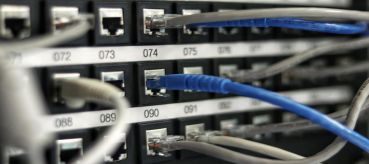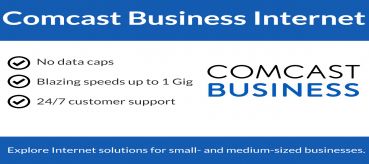Fiber Vs Copper: How to Determine Internet Bandwidth Needs For Your Business

Bandwidth demand has doubled since the service was launched, and this growth shows no signs of slowing down also include information on how much bandwidth each option provides and how it meets your business's data needs now and in the future.
Should your business Internet decision be based exclusively on bandwidth, do you need to know the difference between fiber and copper bandwidth before you decide for a business Internet service? The bandwidth of the fiber-optic Internet differs from copper in many ways, but not in all.
It is imperative that the type of data connection you choose can grow with your company's technology and traffic. Read more about whether fiber or copper is the right choice for your business.
What is Bandwidth?

Bandwidth is best defined as the maximum data transfer rate of data (usually Internet connectivity), or a network's capacity which is generally expressed in gigabits per second (Gbps) or megabits per second (Mbps). The more bandwidth offered by your business Internet service, the more data you can transmit at one time.
Which Supplies More Bandwidth?
Bandwidth is critically important, but it's not the only factor that will impact the quality of business Internet service. Speed, performance, and reliability can often be confused with bandwidth, and are likely equally important to business satisfaction with a data connection. It is a significant difference between copper vs. fiber, but these technologies also provide different levels of reliability and costs for equipment required to transmit data.
Bandwidth is not the same as speed. It refers to the maximum amount of data transfer per second. Measures of Internet speed are based on the actual rate of data transfer per second. Bandwidth is effectively the amount of potential speed that can be used. However, a slow data connection and other connectivity issues such as packet loss and jitter, are frequently caused by insufficient bandwidth.
Also, Read: Why Business Internet is More Expensive Than Residential Internet
The Difference Between Fiber and Copper
Underlying technologies cause the bandwidth gap between fiber and copper. Fiber Internet uses thin bundles of optical fibers, or strands of very pure glass as narrow as a human hair, to transmit data using pulses of infrared laser light. Copper cables literally use copper wires and are a significantly bulkier technology which was first designed to carry voice calls data via electrical pulse.
The bandwidth differences are, effectively, the difference between photons and electrons. Copper uses electrons for data transmission, while fiber uses photons. Light is faster than electrical pulses, so the fiber can transmit more bits of data per second and offer higher bandwidth. The transmission capabilities aren't the only difference between these technologies, however.
Distance
All data signals degrade over a range, but fiber offers significantly better signal durability. Fiber only loses 3% of the signal over distances greater than 100 meters, compared to copper's 94% loss of signal.
Durability
Copper cable can easily be broken during installation or by accident. Despite its large size, copper has a low tolerance for tension. Fiber is smaller, lighter, and more durable than copper cabling and can generally only be damaged through deliberate vandalism, though you do have to be careful with fiber as it is made out of glass. Typically, it's sheathed in a protective coat to make it more durable.
Interference
Fiber optic bundles do not conduct electrical currents, making fiber data connections fully-resistant to fire, electromagnetic interference, lightning, or radio signals. Copper cables are designed to conduct electricity, making copper Internet vulnerable to power lines, lightning, and deliberate signal-scrambling.
How Much Bandwidth Does Fiber Provide vs. Copper?
Optical fiber providers typically offer their customers asymmetrically that matches the same upload and download speeds. Although this capability is rare, it can be found in some of the world's most advanced fiber-to-node (FTTN) networks.
Related Posts
Wed, Apr 22, 2020 11:34 PM
Find Verizon Internet for Business Near You!
Verizon provides Internet for business in more than 40 states in the US, speeds are limited to 15 Mbps, and many businesses will need more juice. If you're in the Northeast, you can enjoy high-speed Internet via Verizon's FiOS. This is ideal for businesses that need high speeds, such as restaurants, hotels, medical facilities, hospitals, schools, and other businesses.
Thu, Apr 23, 2020 12:00 AM
5 Best Small Business Internet Service Providers (2021)
The following Internet Service Providers are not listed in any particular order, but we have ranked these five companies as worthwhile due to some key factors such as speed, reliability, cost, and overall customer satisfaction.
Mon, Apr 20, 2020 11:13 PM
Business Internet Guides for Entrepreneurs
Small businesses need to grow, but how big should your business become before you buy it online? Whether you started out as a sideshow or a brick-and-mortar business, successful small businesses are finding it increasingly difficult to decide when to shell out money for an Internet business.
Thu, Apr 23, 2020 11:52 PM
Why Business Internet is More Expensive Than Residential Internet
This question is asked so often today that it seems worth explaining, but here are 5 reasons why business Internet is more expensive than Residential Internet packages.
Fri, Apr 24, 2020 5:17 AM
Comcast Internet For Business: Internet, Phone, TV, and Other Solutions for your Business.
Comcast Business is US largest cable provider for small and medium-sized businesses and has become a force in the market, recognized by leading industry over the past two years as one of the fastest-growing providers of high-speed broadband to business customers





